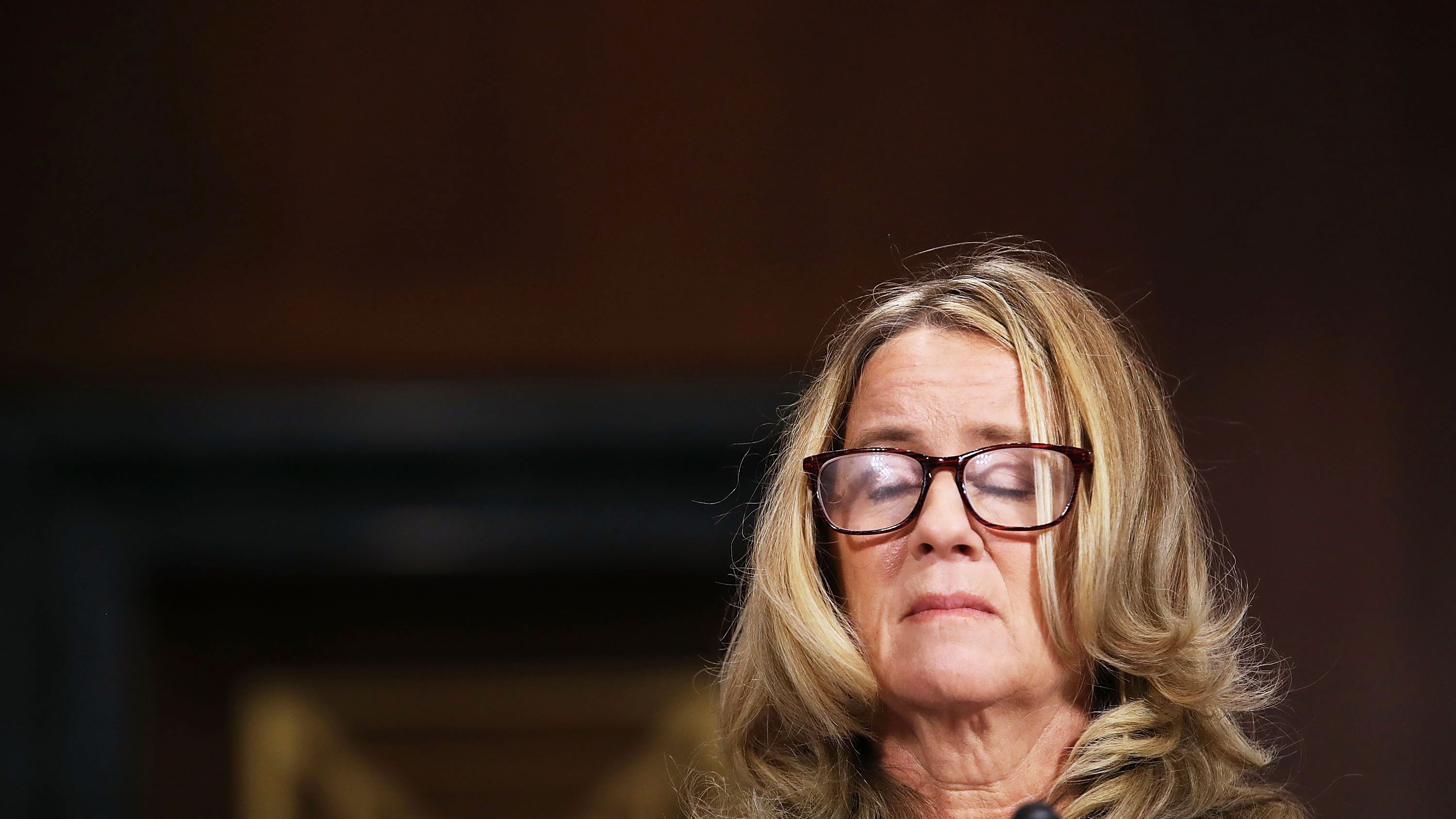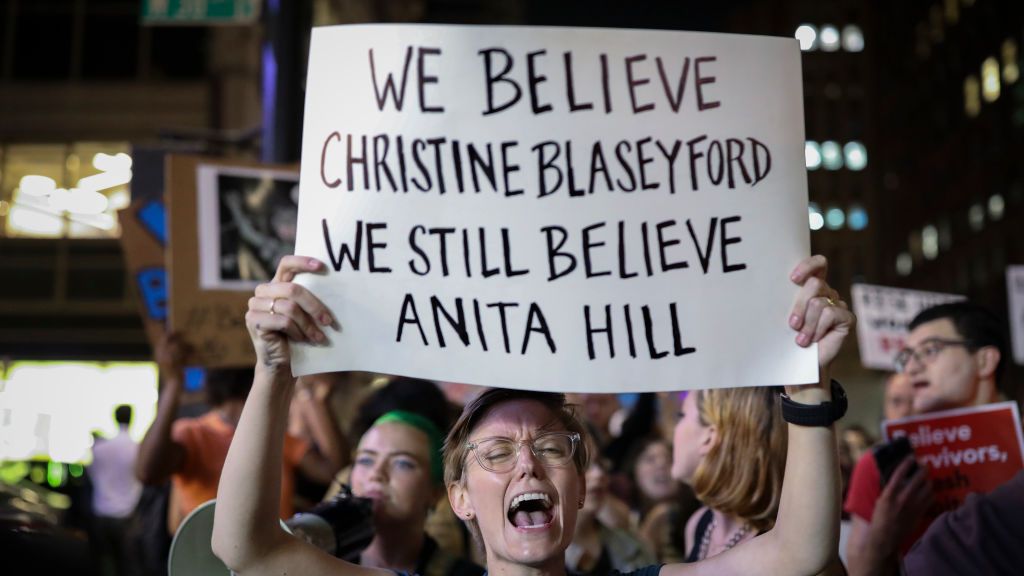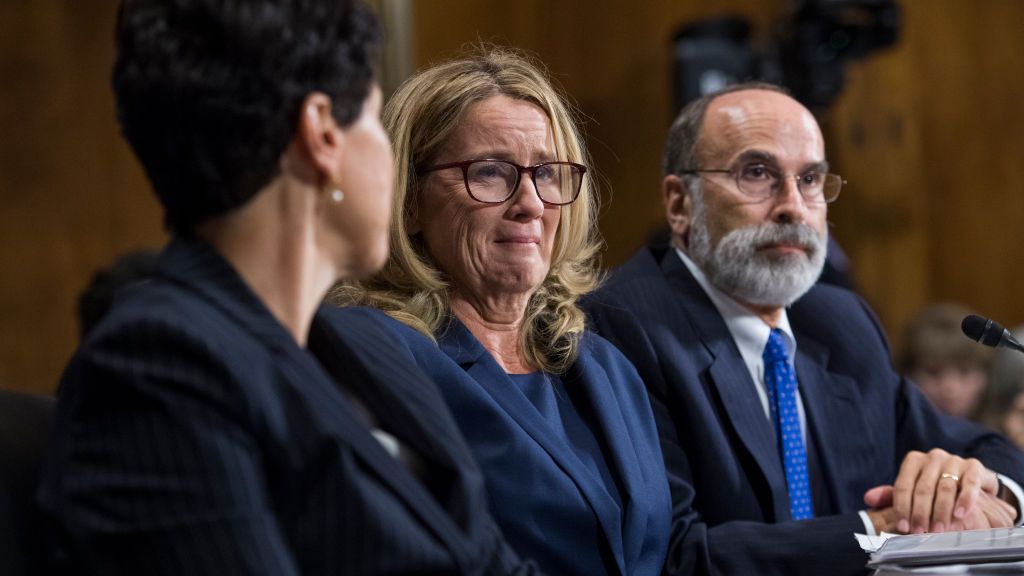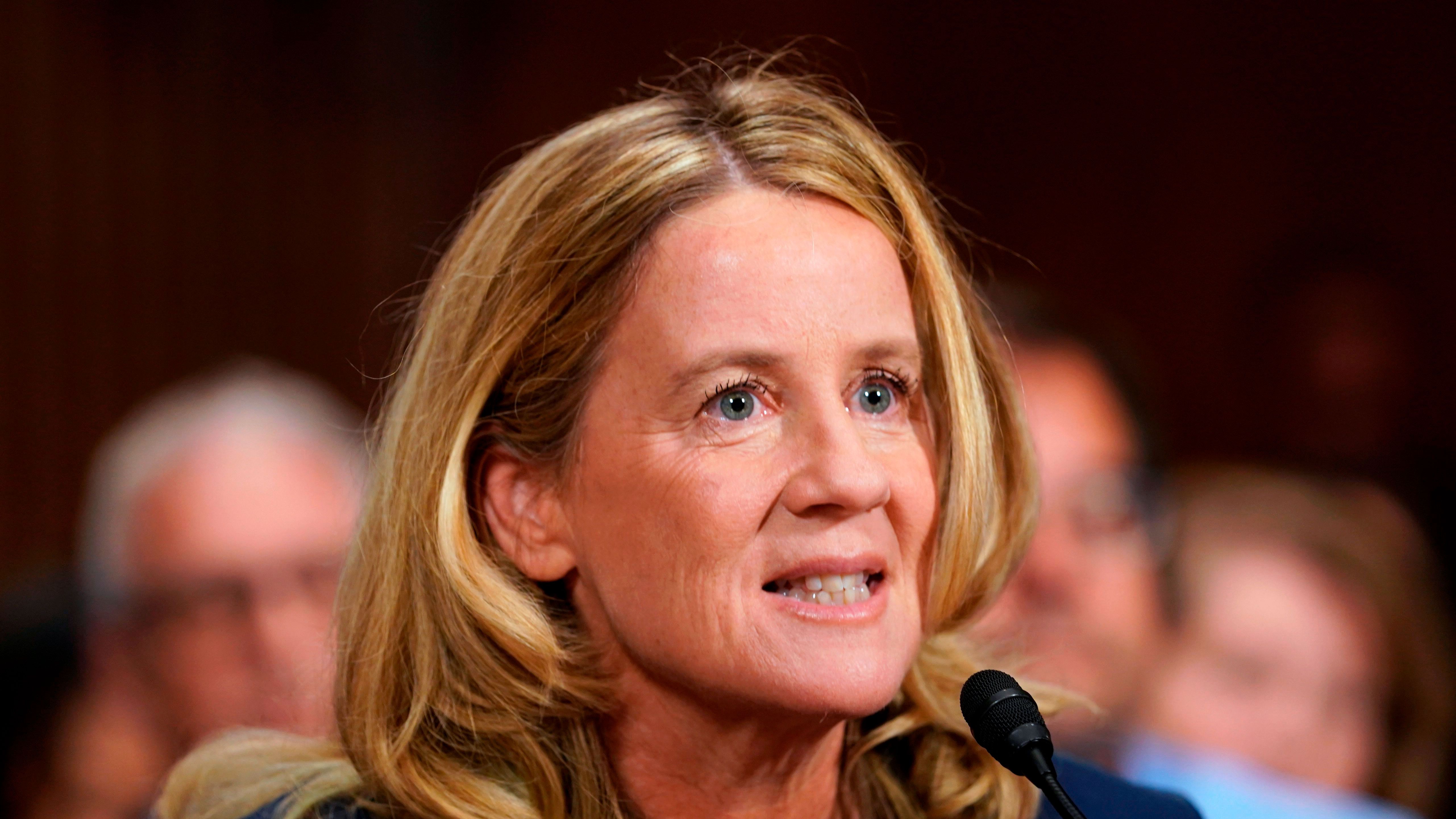Women Do Lie About Being Sexually Assaulted, But Only to Themselves
It took me two years of therapy to even begin to think about it.

It took two years of intensive therapy before we reached the point that my therapist could even ask the question.
The depression and anxiety we caught right off the bat—I’ve struggled with both my entire life—and we began dealing with my issues of self-worth and self-loathing almost immediately. Within the first month, we put a name to the specter that had hung over my head for decades, the unholy union of my depression and anxiety, coming together to mess with my life: “An eating disorder,” my therapist told me. By the next year, we had realized my compulsive eating and obsessive behavior were in line with obsessive-compulsive disorder.
Two years. Think about that. Two goddamn years. Twenty-four months. One hundred and four weeks. Seven hundred and thirty days. In that time, a new president took office. I got married. I wrote a book. My friends had babies who are now toddlers. Two years is a long time to have spent working on your mental health, and yet it took two years to even get somewhat near the crux of it all.
Of course I’ve been sexually assaulted. That’s just part of what it means to be a woman in America.
“Were you ever molested?” my therapist asked, towards the end of another late-night session. Per usual, I was tired from talking and eager to leave, and the question took me by surprise. Looking back, my shock was not so much at the question itself but in the automatic response that I had to stop from bursting from me like a noxious burp I had not intended to release: “No.”
“No.” “No,” I wanted to say immediately. “No,” as I’ve said my whole life. “No”—and I had to stop myself because, for the first time, I couldn’t be sure whether this answer was true.
“I don’t know,” I realized. Such a trite answer to such a serious question. Later, in bed, when my eyes refused to close, I berated myself for not knowing. How do you not know if you were molested? I thought. You either were or you weren’t.
When my therapist asked the question, I cracked a joke, reverting back to the programming that has been drilled into the soul of every woman since the beginning of time. Keep it light. Be pleasant. Smile pretty. Don’t come off as emotional. “Well, of course I’ve been sexually assaulted,” I said. “That’s just part of what it means to be a woman in America.”
Get exclusive access to fashion and beauty trends, hot-off-the-press celebrity news, and more.
She accepted my brush-off, smiling tightly as she scribbled notes to come back to at a later session. She must have sensed my brittle fragility in that moment, peeking out from under the thin veil of my bravado, and moved away before I shattered.

It took three more sessions before we could even begin to speak of those assaults. Of the gray areas of consent with a college hookup, a blackout drunk taxi ride, a rough encounter at a bar that left me bruised and sore the next day.
I write about trauma victims. I speak at length with survivors of sexual abuse. I know what the experts and the studies say. If I were to take an outside look at my life and my choices and my actions, I would at least asked the question.
But I hadn’t, and even then, with it sitting heavy in the space between my therapist and me, I didn’t want to ask it.
“What’s the problem?” my therapist asked. “What are you afraid of?”
Last Thursday, Dr. Christine Blasey Ford testified in front of a Senate committee about the attempted sexual assault she says she experienced at the hands of Supreme Court nominee Brett Kavanaugh (which Kavanaugh denies). Dr. Ford's story came up in a therapy session decades later, she said, only because she and her husband were remodeling their home and she had insisted on a second front door. No one understood why.
"The reason this came up in counseling is that my husband and I had completed an extensive remodel of our home, and I insisted on a second front door, an idea that he and others disagreed with and could not understand. In explaining why I wanted to have a second front door, I described the assault in detail."
Afterwards, Ford spoke of how she had convinced herself that she should move on because she hadn’t actually been raped.
“What’s the problem?” my therapist had asked me. “What are you afraid of?”
“That I lie,” I said.
Ah, yes, the old "I lie" excuse. It’s a point that Kavanaugh’s supporters have jumped on in analyzing every tiny minutia of Dr. Blasey Ford’s account. It’s a version of what all the naysayers love to parrot when it comes to sexual assault allegations. “False reports!” they cry. “Women make false reports all the time!” (They don’t, at least not to the authorities—according to the National Violence Resource Center, only about 2 to 10 percent of all reports are found to be false.)
But the problem is this: We also do. We make false reports all the time. We lie constantly. We just do it to ourselves.
Were you ever molested? I don’t know. I don’t know, because even for the instances of sexual assault that I am sure of, I can’t remember large swaths of what actually happened. I made sure of that by drinking enough both before the assaults, and after. I rewrote them as silly party stories—“Remember that time I got so drunk I did that crazy thing?” I did it. Somebody didn’t do it to me. I am not a victim. Now back to our regularly scheduled programming. Keep it light, keep it pleasant. Don’t make a scene.

Nobody believed us for so long that we stopped allowing ourselves to believe in ourselves. Instead, we bury the corpses of our trauma deep in a graveyard we hold within our bodies. We pretend that it doesn’t affect us. We lie to ourselves and say we are not victims. We rewrite history, and then we can’t understand why our traumas still hold so much power over us when we spent so much wasted time and energy doing whatever we could so that they wouldn’t.
If I put in more than one front door, then I won’t be a victim because I can escape. If I drink so much I black out, then I won’t be a victim because I won’t remember. Were you ever molested? No. If I say no, then it didn’t happen. If I say no, then no one had hurt me. No. No. No, even when it’s actually “I don’t know.”
Kavanugh’s supporters have challenged Dr. Blasey Ford’s account, asking how anyone can accurately remember something they said happened more than 30 years ago. Survivors of sexual assault have responded that you can’t forget when it happens to you, that this sort of trauma stays with you. I’m here as proof that that’s true. That even when you’ve done all you can to try and forget, decades later, you will insist on putting in a second front door and no one will understand why. That even after two years of diagnoses and intensive mental health work, you will have a question you will not know the answer to.
I have a lot to work through in therapy. It could take two more years, three more years, the rest of my life. But what I know right now is I believe Dr. Christine Blasey Ford. I believe Deborah Ramirez. I believe Julie Swetnick. I believe Anita Hill. And when the time comes to unearth the traumas I’ve hid from for so long, I will believe myself.
RELATED STORY
